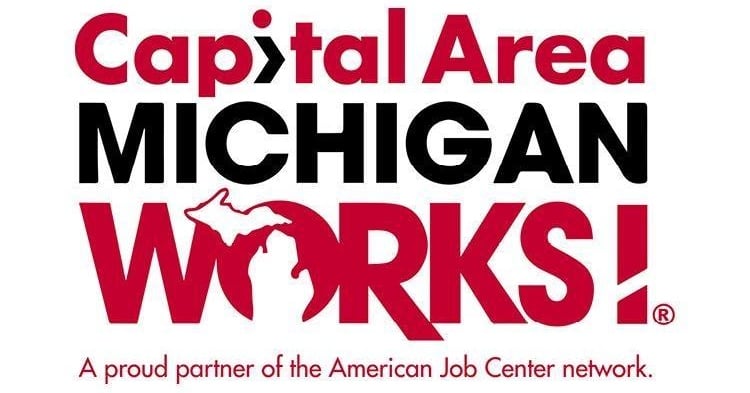
Chris Holman welcomes back Carrie Rosingana, , CEO, CAMW! Capital Area Michigan Works!, Lansing, MI, but serving Ingham, Eaton and Clinton Counties.
Watch Carrie and Chris discuss the Michigan Statewide Workforce Plan, its goals, and the impact it will have on businesses and job seekers in Ingham, Eaton, and Clinton Counties.in the YouTube video shared below:
THEME: Following the June 5 roundtable with Lieutenant Governor Garlin Gilchrist, Carrie reviews the mission of the Michigan Statewide Workforce Plan and its importance to businesses and job-seeking individuals.
Question: In March, Governor Whitmer announced the first-ever Michigan Statewide Workforce Plan.
Can you tell us the goal of this plan and how it will affect our workforce?
Question: On June 5, CAMW! hosted a roundtable discussion to further review the workforce plan.
What topics were expanded upon during the roundtable?
Question: What gaps in employment are addressed in the Statewide Workforce Plan?
Question: How is Capital Area Michigan Works! implementing and supporting the mission of the workforce plan?
For more on that June 5th session: Gilchrist, Corbin: Workforce Plan Will Help Eliminate Barriers
Department of Labor and Economic Opportunity Director Susan Corbin and Lt. Gov. Garlin Gilchrist II heard feedback on the Statewide Workforce Plan in a Wednesday roundtable, examining the successes and challenges of working to meet the goal of moving 75,000 households up to the middle class by the end of 2027.
Gilchrist and Corbin were joined by a group of statewide and local economic development officials, Rep. Kara Hope (D-Holt), and Capital Area Michigan Works! CEO Carrie Rosingana. The discussion was centered on removing barriers to job and service access for formerly incarcerated people, but the group also covered issues of education access, food assistance for students who work or have apprenticeships, and the ways change in income can limit access to government services.
“This is the first time we’ve ever had a statewide workforce plan that has very clear goals of where we want our state to be,” Corbin said. “We know that a lot of great things are already happening across the state. I think it was important for us today to hear what’s happening on the ground, people that are working, you know, working on our issues every day.”
Corbin said the workforce plan has had victories in the Department of Corrections Michigan Offender Success model, which helps connect returning citizens with skill-building and employment opportunities, and the Job Court pilot program in Genesee, Marquette, and Wayne Counties, which matches previously incarcerated workers with participating employers to work well-paying jobs to prevent recidivism.
Next up for LEO’s execution of the plan is expanding the Department of Licensing and Regulatory Affairs Returning Citizen Guidebook to include an outline of which industries have pathways to licensing for formerly incarcerated workers. Gilchrist said advancing initiatives like these will further the goal of reintegrating those who’ve been incarcerated back into the workforce.
“For that to be viable, (we have) to remove the barriers that stand between people and their possibilities, and so much of this is grounded in community support and people making sure that they are helping other people be successful,” Gilchrist said. “We’re seeking that people who are returning from incarceration have no more barriers between themselves and their full integration into civic and economic life, including pathways on apprenticeship and education, housing and other important pieces.”
Corbin said it was important to hear from members of the community about issues they had while implementing aspects of the workforce plan so LEO can begin to address them.
“There was an issue in terms of returning citizens accessing health care, and some of the barriers there, and I think that we need to fully understand that,” Corbin said. “Then one issue that I’m sure we have other state agencies working on is people not having the resources just to get simple documents, like their child’s birth certificate or their driver’s licenses.”
When it comes to carrying out the plans and services to fulfill the goals of growing the middle class, supporting entrepreneurial growth and helping more people get skills certificates and degrees, Corbin said inter-agency collaboration is key.
“Our challenge and my personal priority as a director in state government is that as we’re pursuing our goals and getting the work done that we know needs to happen, we also engage across state government with all of the other agencies that should be there,” Corbin said.
In the upcoming final stage of budget negotiations for fiscal year 2024-25, Corbin said she hopes to see programs like the Going Pro Talent Fund continue to be funded and receive ongoing investments from the state.
“We know that that’s a program that’s that program has been wildly successful. It supports Michigan employers so that they can have resources to train their employees,” Corbin said. “We know it’s a strong employee program as well because the training results in some kind of skill credential, and on average, employees see almost a 10% wage increase six months after they have sponsored retraining. (Gov. Gretchen Whitmer has) proposed adding an additional 20 million to that program, and that could be very impactful.”
» Visit MBN website: www.michiganbusinessnetwork.com/
» Subscribe to MBN’s YouTube: www.youtube.com/channel/UCqNX…
» Like MBN: www.facebook.com/mibiznetwork
» Follow MBN: twitter.com/MIBizNetwork/
» MBN Instagram: www.instagram.com/mibiznetwork/
State Rep. Kara Hope (D-Holt) addresses a roundtable at Capital Area Michigan Works! office, June 5, 2024 | Lucy Valeski














